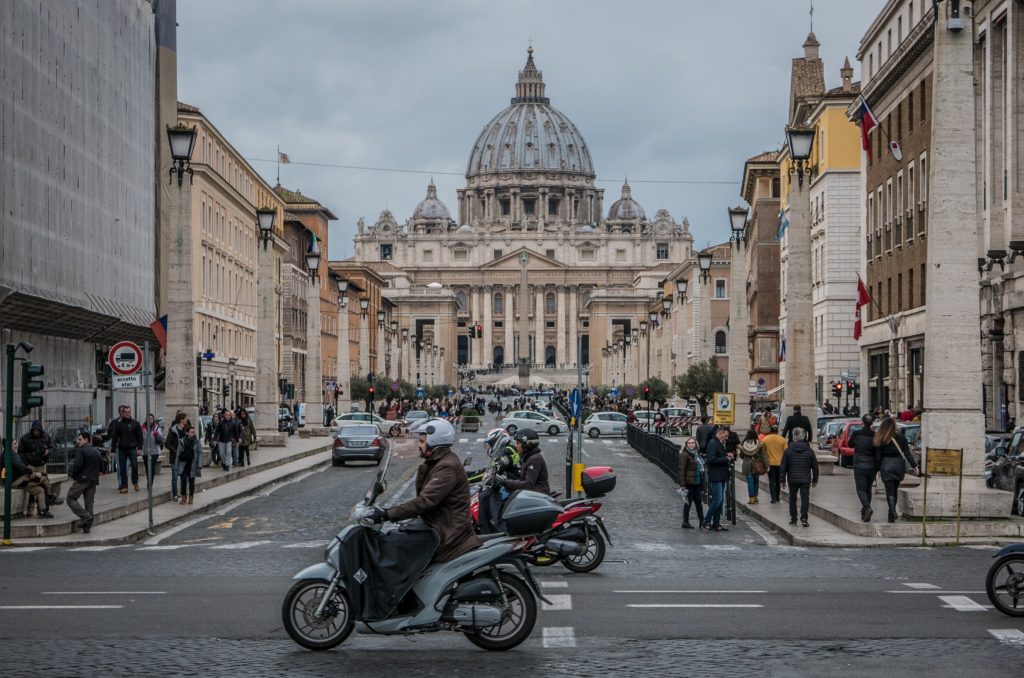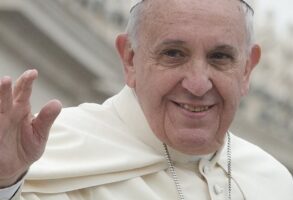
Published January 13, 2022
A lot of Catholics are, if you haven’t noticed, somewhat ambivalent about the Synod on Synodality. This ambivalence – which for some verges into outright skepticism – is not reserved to “conservatives” or “critics” of Pope Francis.
Earlier this month, in America Magazine, Fr. Louis Cameli, who serves as Cardinal Blase Cupich’s delegate for formation and mission in the Archdiocese of Chicago, wrote about how his initial enthusiasm for the Synod has been tempered by “questions and hesitations.” The preparatory documents for the Synod, he writes, are full of “noble aspirations,” but are “also a bit overdrawn.” He goes on:
A synod on synodality is a process about a process. And that stuck with me. A process about a process seemed to be without content. Where would this lead us? The questions that are posed by the preparatory documents to Catholics throughout the world probe process, not content. The questions about listening attentively, speaking openly and acting boldly are good questions. At the same time, they also seem to suffer from a certain vagueness. Where is a synod on synodality leading us? We are on the road together, but where is that road taking us? What is the destination? In the end, are we bound to be disappointed?
These are important concerns. I mention them because I share them, but also to underscore the point that legitimate concerns about the direction and process of the Synod can’t be dismissed as a mere function of ecclesial politics or ideology. Those who think the Synod is important and would like to see it succeed, ought to be doing what they can to address identifying and addressing its shortcomings and challenges.
Fr. Cameli, for his part, suggests reframing the fundamental question being asked by the Synod: “As God’s pilgrim people journeying together, how can we more effectively bring the life-giving power of the gospel to a world so desperately in need of it?” That is a question worth asking. And it’s a question worthy of prayerful discernment by the entire Church. But it’s also worth asking, and not just rhetorically, why a Synod barely begun needs to be fundamentally reframed already.
And this brings us to one of the chronic challenges of this Synod, and indeed the Church in the 21st century: What is it for?
It is very difficult to square the tremendous ambition of a global Synod on the Church’s modus vivendi, on the one hand, with the mundane trappings in which so much of the Synod is clothed. If the mission of the Church is the proclamation of the Gospel for the salvation of souls, and if the Synod is intended to re-invigorate the entire Church in service to that mission, why do so many in the Church insist on making the stakes for the Synod appear to be so incredibly low?
The latest example of this happened just earlier this week. The USCCB posted a graphic on social media listing “seven attitudes we can all adopt as we continue our synodal journey together.” Followers on Twitter, Facebook, and Instagram were asked to leave a comment to say which “attitude” inspired them the most. Here are those “inspiring attitudes”:
INNOVATIVE OUTLOOK
INCLUSIVITY
OPEN-MINDEDNESS
LISTENING
ACCOMPANIMENT
CO-RESPONSIBILITY
DIALOGUE
Reactions were swift, overwhelmingly critical, and not always charitable. At one point, comments on the USCCB Twitter post were turned off, which only led to more snark about the arbitrary limits of “dialogue” and “listening.” It’s not hard to see why the criticism was so voluminous. There is nothing distinctively Catholic, or even religious, about any of this jargon. There is no mention of virtue, or faith, or truth, or God. Just bureaucratic buzzwords, each one an empty vessel. It all seemed so unnecessarily, almost provocatively, banal.
I don’t know who composed that list or posted it on social media. Let’s hope “lessons were learned.” I do know that the team assigned to the Synod at the USCCB is very small – just one or two staffers. To say they have their hands full is an understatement. The idea that the USCCB staff is “running” the Synod here in the United States just isn’t true. Their role is to facilitate and, when necessary, act as a liaison between local Churches and Rome.
The point is, an ill-advised post on social media is not worth the pile-on, especially given the good and decent people who are, lest we forget, on the other side of those social media accounts. The entire kerfuffle is a small thing.
But it also fits into a larger pattern: the ridiculous font and childish graphics chosen for the synod, the jargon laden verbiage, the striking absence of Biblical language, the emphasis on novelty, the overdrawn aspirations – taken individually, these things can be dismissed. As a whole, they only serve to convince Catholics (and plenty of non-Catholics looking on, by the way) that the whole Synod process is precisely the sort of bureaucratic, political enterprise the Holy Father keeps insisting it must not be.
And therein lies a massive problem.
Whatever one thinks of the prudence of the Synod itself, the challenge it was convened to address is a real one. To restate Fr. Cameli’s formulation of the question: As God’s pilgrim people journeying together, how can we more effectively bring the life-giving power of the Gospel to a world so desperately in need of it?
The mission of the Church is nothing less than the proclamation of the Gospel for the salvation of souls. The stakes, in other words, could not be higher for the world or for those of us with the baptismal responsibility to proclaim the Gospel.
The Synod will struggle to serve that mission if it busies itself with worldly concerns. If those directing the Synod at every level of the Church present it in worldly terms – political, bureaucratic, ideological terms – then it will surely become merely that.
And that would be a tragedy: an opportunity squandered, and a counter-Gospel proclaimed.
Stephen P. White is executive director of The Catholic Project at The Catholic University of America and a fellow in Catholic Studies at the Ethics and Public Policy Center.
Stephen P. White is a fellow in the Catholic Studies Program at the Ethics and Public Policy Center. Mr. White’s work focuses on the application of Catholic social teaching to a broad spectrum of contemporary political and cultural issues. He is the author of Red, White, Blue, and Catholic (Liguori Publications, 2016).











